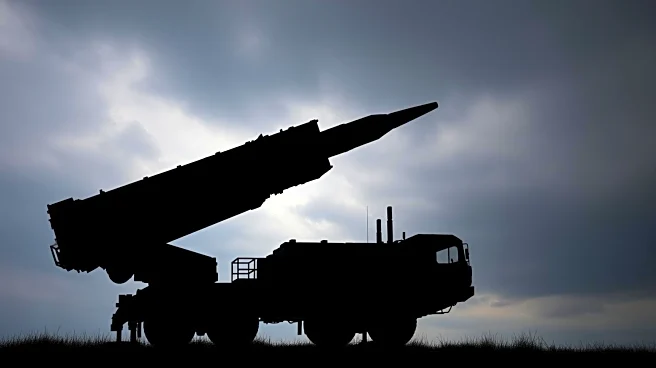What's Happening?
North Korea has issued a warning to the United States following the test-firing of a ballistic missile and the imposition of new American sanctions. North Korea's defense minister, No Kwang Chol, stated
that the country would take 'more aggressive actions against the threat of our adversaries,' condemning recent security talks between the U.S. and South Korea. The arrival of the American nuclear-powered aircraft carrier George Washington in South Korea has further escalated tensions. North Korea's actions come as President Trump and other world leaders gathered in South Korea for regional meetings, during which North Korea also test-fired cruise missiles.
Why It's Important?
The situation underscores the ongoing volatility on the Korean Peninsula, with North Korea's actions potentially leading to further military escalation. The presence of the U.S. aircraft carrier and joint military drills with South Korea are seen as provocative by Pyongyang, which may respond with additional missile tests or cyber operations. The heightened tensions could impact regional security dynamics and influence U.S. foreign policy decisions regarding North Korea. The sanctions imposed by the U.S. aim to curb North Korea's cyber-related activities, but may also provoke further aggressive responses from Pyongyang.
What's Next?
As tensions increase, there is anticipation over potential diplomatic engagements, including President Trump's expressed interest in meeting North Korean leader Kim Jong Un. Such a meeting could either ease tensions or further complicate relations, depending on the outcomes. The international community will be closely monitoring North Korea's next moves, particularly any additional missile tests or military actions. The U.S. and South Korea may continue to strengthen their military alliance in response to North Korea's provocations.









